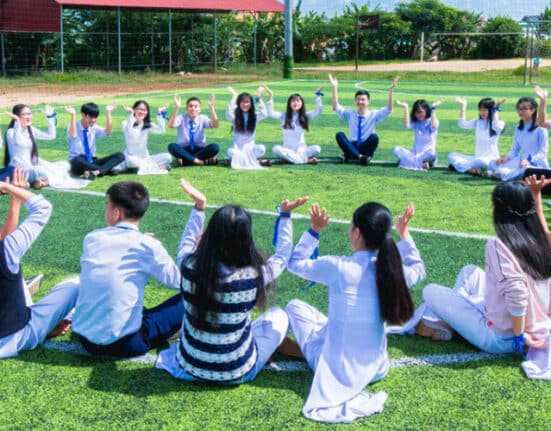I’m sure we’ve all experienced this at least once in our lives. We’ve met that one person who wouldn’t do their tasks on time, who would leave you ‘on seen’ (or worse, inbox-zoned) in group chats, and who would try to insert themselves into the project only after the most difficult parts were done.
We all hate that person— the freeloader, the moocher, the pabigat. ‘Acads’ is hard enough, but dealing with groupmates who won’t do their part just brings you to another level of frustration.
But we also hate to be that person. The one no one likes to choose during groupings. The one they whispered about when his or her back is turned. The one who cannot contribute during big academic projects.
So… how do we avoid being a freeloader?
In this article, republicasia interviewed Gen Zs and their views on a freeloader groupmate. We compiled their responses to come up with the 5 ways to avoid being a pabigat to your group.
1. Understand the task and determine which you can do best
Sometimes, people experience being a freeloader because they don’t know how to execute the task that was assigned to them.
Such was the case of Jasmine Red Ronas, a 24-year old graduate of University of Sto. Tomas. During her college stint, Ronas experienced carrying both the freeloader and being a freeloader herself.
“It happened when I really didn’t get how to do my part in the group work,” explained Jasmine when asked if she ever experienced being a freeloader. “It sucks being the one in-charge, doing everyone’s work. I realized how much of a burden I put on my past groupmates once I experienced being the group leader.”
Jasmine’s advice for students is to determine their strengths and weaknesses so they can volunteer tasks where they excel. She added that being sensitive about your peer’s need is very important in the dynamics of a group setting.
“For me personally, I would try my best to understand what needs to be done and, from there, I will determine which task I can do best so I can help my peers,” she further explained.
2. Communicate with your group members
Raquel Cunanan, a student from Makati Science Technological Institute, also experienced being a ‘pabigat’ to her groupmates. She once had difficulty managing the tasks, especially since she is a working student.
“Minsan kasi, ang hirap mag-manage ng oras at priority dahil din working student ako. Pero natutunan ko rin eventually na hindi tama ‘yun lalo na [kapag] group effort.”
(Sometimes, I find it hard to manage my time and priority because I am a working student. But I eventually learned that wasn’t right, especially since it’s a group effort.”)
Raquel said that communication with groupmates is crucial, just as much as time management. Letting them know about your situation ahead of time would allow them to make adjustments. It would enable both parties to delegate tasks according to one’s situation, and would help in preventing future misunderstandings.
“May time din na ako ‘yung sinabihan kasi akala nila wala akong ginagawa pero hindi ko lang na-communicate nang maayos ‘yung progress ko. Nagka-clash kami sa expectations pero natuto rin kami na mag-usap nang maayos para maging klaro ang lahat,” said Raquel.
(“There was also a time that I’ve been called out because they thought I was not doing anything, but I just really failed to communicate my progress. We had clashing expectations but we both learned to communicate well to clarify everything.”)
3. Take Initiative
Sean Ronas, a student from UST, encouraged people to take the initiative in groupworks. He even said that, if possible, prioritize groupworks over individual undertakings.
“Try to take initiative early on so they won’t think of you negatively when issues arise,” Sean said.
The same sentiments were echoed by Josh Carlo Ching, a student from Centro Escolar University.
“My advice would be to always take initiative to ask what tasks need to be done, and to finish them right away.”
For both of them, showing initiative on groupworks sends the message that you’re serious about it, and that you will be a reliable member.
4. Manage your time and finish the task early
It is also a courtesy for the other group members who often shoulder the unfinished tasks. This was what Adea Quejada, from Laguna State Polytechnic University Sta. Cruz Campus, experienced.
“Malaki din talaga ‘yung impact, lalo na if ever 2 or 3 lang kayo sa group kasi mapipilitan ‘yung isa na i-shoulder ‘yung task na supposed to be gawain nung isa, and it shouldn’t kasi in every group work, dapat may teamwork.”
(“It really has a big impact, especially if you’re just 2 or 3 in a group. There would be someone who’d be forced to shoulder the task that is supposed to be another’s delegation. This shouldn’t be because you’re supposed to have teamwork.”)
When asked what her advice is, Adea doubled down on finishing the task early on.
“Ang tips ko lang for others is dapat we should be responsible sa duties and responsibilities natin as a student to avoid being a pabigat, and for us to manage our time wisely para magawa natin ‘yung mga priorities natin.”
(“My tips are for others to be responsible in their duties and responsibilities as a student to avoid being a freeloader, and for us to manage our time wisely so we can do our priorities.”)
5. Take accountability for your actions and apologize when needed
Working on big projects on top of piling academic responsibilities can sometimes mean that we’re bound to make mistakes and forget some things. This is understandable but not always excusable. When this happens, we should always take accountability for our lapses, and apologize if it causes inconvenience to others.
“Minsan kasi, bigla na lang hindi nagpaparamdam [groupmates]. Seen lang sa GC, or minsan nga ‘di pa sini-seen. Makikinig naman kami if may excuse, kaso ghosted eh. Paano mo iintindihin ‘yun? Ni mag-explain, ‘di magawa,” said Samantha Aguirre, a recent graduate of University of the Philippines Los Baños.
For Samantha, a groupmate should have, at least, the decency to explain themselves for not showing up. Lapses could be explained and apologized for, but the greatest insult would be to leave your groupmates hanging.
“Sana kahit explanation man lang, masabi sa ‘min. I would respect them even just for the guts of showing up and taking responsibility,” she added.
Being a student is certainly not an easy feat, but we should remember that it is not just us who find things difficult. Our classmates also have their own things to deal with. Group projects are not only there to raise up our grades, but to also train us how to handle future problems that need coordination, responsibility, and transparency.
Also read:
- Is it wrong to spend all your time with your partner?
- UAAP: Final Four spots still up for grabs
- Setting personal boundaries: Why they matter
- UAAP: Final Four cast to be determined on Wednesday
- Student Government: Is it for you?
How useful was this post?
Click on a star to rate it!
Average rating 0 / 5. Vote count: 0
No votes so far! Be the first to rate this post.
We are sorry that this post was not useful for you!
Let us improve this post!
Tell us how we can improve this post?





